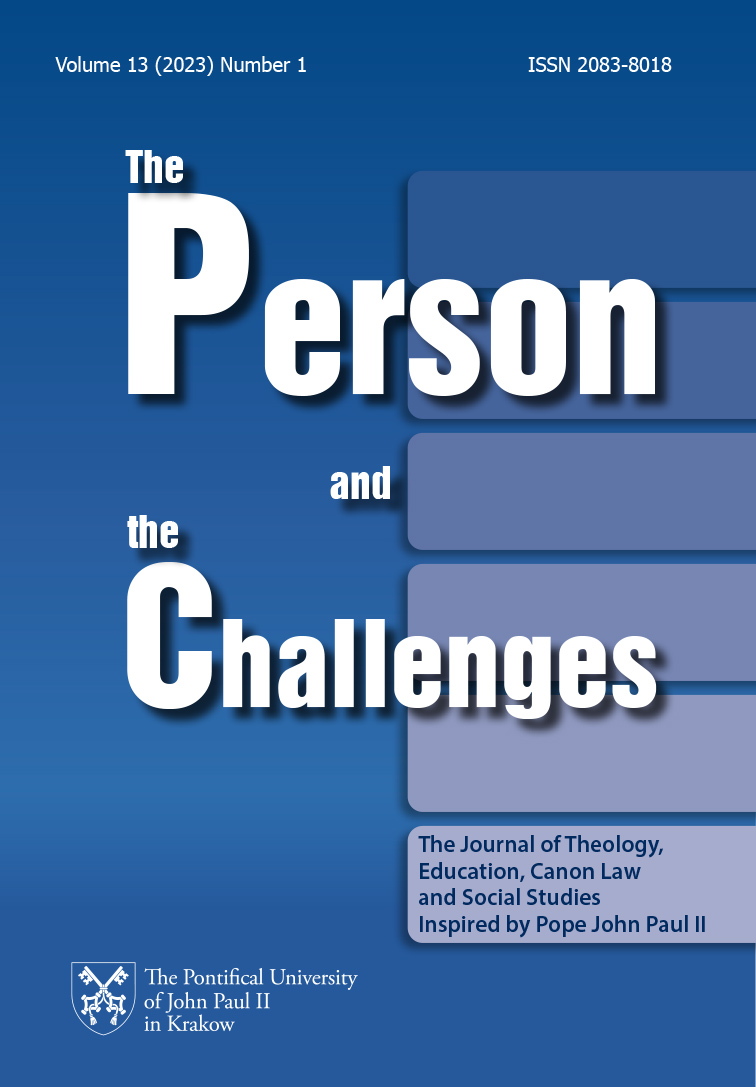L’approccio pastorale dialogico alla luce del Sinodo. The Dialogical Pastoral Approach in the Light of the Synod
DOI:
https://doi.org/10.15633/pch.13111Keywords:
Dialogue, synod, pastoral, communication, social representationsAbstract
The study sheds light on the problem of communication in the Church and proposes a model of dialogical communication based on data analysis. It must be in harmony with the content of speculative theology, but at the same time it must meet the linguistic needs of the present time. Pope Francis, with the Synod, is channeling many changes in the right direction. Empirical analyses of media coverage of representations of the Catholic Church, provide further support for this theme. On the one hand, we have the press in Slovenia, which is saturated with news about the Church, and on the other hand, we have Radio and Television, which are undernourished. Often, the Church is presented along with celebrities, celebrations, politics and charity work. If we take into consideration the dialogical model of communication, these issues can be entry points for better and more qualitative communication.
References
Asolan P., Il tacchino induttivista. Questioni di teologia pastorale. Trapani 2009, ed. Il pozzo di Giacobbe.
Bilicka B., Professional Advancement of RE Teachers in the Context of the Challenges of the Information Society, “The Person and the Challenges” 11 (2020) 2, pp. 65–78.
Castells M., Comunicazione e Potere, Milano 2009, ed. Università Bocconi Editore.
Da Silva A., Catechesis in the Digital Age. From Transmission to Sharing, “Aline” 38 (2019) 4, pp. 11–20.
Dulles A., Modelli di Chiesa, Padova 2005, ed. Messaggero di sant’Antonio.
Dulles A., Religion and the News Media. A Theologian Reflects, “America” 9 (1994), pp. 6–9.
Hall S., J. Evans, S. Nixon, Representation. London 2013, ed. The Open University SAGE.
Katz E., Lazarsfeld P.F., L’influenza personale in comunicazione, Rim 2012, ed. Armando.
Kraner D., Intolerance in the Media and Representations of the Catholic Church, “Crkva u svijetu” 56 (2021) (4), pp. 731–766.
Kraner D., Le rappresentazioni sociali della Chiesa Cattolica in Slovenia, Rim 2019, ed. LAS.
Lever F., Comunicazione. L’utilità di una definizione di riferimento, in: Dai loro frutti li riconoscerete (Mt 7,15–16). Comunicazione, Coerenza, Azione, ed. F. Lever, F. Pasqualetti – A. V. Presern, Roma 2011, ed. LAS.
McLuhan M., Understanding Media, London and New York 1964, ed. McGraw-Hill.
Midali M., Teologia pratica. 1. Cammino storico di una riflessione fondamentale e scientifica, Roma 2005, ed. LAS.
Moscovici S., Le rappresentazioni sociali, Bologna 2013, ed. Mulino.
Noelle-Neumann E., La spirale del silenzio. Per una teoria dell’opinione pubblica, Roma 2002, ed. MELTEMI.
Pasqualetti F., La verità ci farà liberi? Big data e società del Calcolo. Il culto del dataismo e le sue conseguenze, in: La verità vi farà liberi (Gv 8,32). Fake news e giornalismo di pace, eds. P. Springhetti, R. Butera, Roma 2018, ed. LAS, pp. 143–166.
Sarah R., Proti večeru gre in dan se je že nagnil, Ljubljana 2019, ed. Družina.
Sultana C. M., COVID-19. A Catechetical-Experiential Reading, “The Person and the Challenges” 11 (2020) 2, pp. 27–46.
Tajništvo SŠK, Za sinodalno Cerkev: občestvo, sodelovanje in poslanstvo. Pripravljalni dokument, Ljubljana 2021, ed. Slovenska škofovska konferenca.
Downloads
Published
Issue
Section
License

This work is licensed under a Creative Commons Attribution 4.0 International License.
Authors who publish with this journal agree to the following terms:
- Authors retain the copyright and full publishing rights without restrictions, and grant the journal right of first publication with the work simultaneously licensed under a Creative Commons Attribution 4.0 International License that allows others to share the work with an acknowledgement of the work's authorship and initial publication in this journal.
- Authors are able to enter into separate, additional contractual arrangements for the non-exclusive distribution of the journal's published version of the work (e.g., post it to an institutional repository or publish it in a book), with an acknowledgement of its initial publication in this journal.
- Authors are permitted and encouraged to post their work online (e.g., in institutional repositories or on their website) prior to and during the submission process, as it can lead to productive exchanges, as well as earlier and greater citation of published work (See The Effect of Open Access).

